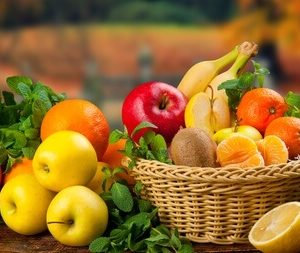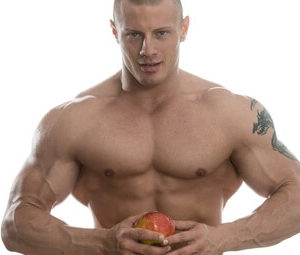Protein Choices for Vegans – Vegan Protein Sources
Vegan and Vegetarian Diets
Vegetarian diets can play a key benefit for health and decrease the chances of obesity. Vegetarian diets have a broad range of eating habits which include vegans who leave out all animal products, Ovo-Lacto vegetarians that include eggs, milk, and dairy products but no meat or pescatarian that eat all fish in addition to eggs, milk, and dairy products but no land animals.
Vegetarian Times published a study in 2008 (1) about “Vegetarianism in America.” The study showed that 3.2 percent of U.S. adults, or 7.3 million people, follow a vegetarian-based diet. Vegans comprised approximately 0.5 percent or 1 million, meaning individuals who do not consume animal products at all.
I have personally been a vegetarian/vegan for almost 30 years. During that time, I have always been highly active and healthy. The common question, of course, becomes – What do you eat for protein? What are the options for vegan protein sources?
Over time I have had a variety of favourites depending on what my current vegetarian/vegan diet of choice was at the time. Currently, I am vegan, and as such, have found a significant number of high-quality vegan protein sources i.e plant-based.
Vegan Protein Sources:
Nutritional Yeast
Nutritional yeast is a plant-based source of protein, which makes it an important part of vegan recipes and a great vegan protein sources. Nutritional yeast has a tangy and cheese flavor similar to Parmesan Cheese. It comes in flakes or powder, so it is easily added into hot foods. Unlike other plant-based sources, Nutritional yeast is a complete protein. A complete protein is one that contains all the nine essential amino acids necessary for optimal health. Nutritional yeast also enhances the immune system by providing beta-1,3 glucan, trehalose, mannan and glutathione. These compounds reduce cholesterol levels and possibly prevent cancer.
Nutritional yeast also provides a significant amount of the minerals such as selenium, zinc and iron. Vitamins in this powerhouse food include the B vitamins thiamine, folate, B-6 and niacin. High-quality brands will provide you with a day’s worth of B vitamins in just half a tablespoon. Nutritional yeast most often is fortified with vitamin B-12, which is found exclusively in animal products. These vitamins help you to feel energetic, and they produce red blood cells. Important for many vegans, the protein (10 gm/2 tbsp.) and fibre (6.4 gm/2 tbsp.) in Nutritional yeast helps with feeling full at meals and the B vitamins help in energy production. It also provides about 40 g of protein per 100 g.
Tempeh
Tempeh is a soy product it has a bit more calories than tofu, but is less processed, and it’s considered to be a healthier choice because it contains more protein and fibre. Tempeh is produced with fermented cooked soybeans and a mold, usually Rhizopusoligosporous, which is then mixed with other whole grains. Studies have shown that the fermentation process increases the riboflavin, vitamin B6, nicotinic acid (niacin), and pantothenic acid contained in the product. The fermentation process makes fine white filaments that cover and bind the mixture together.
Tempeh can be found usually in the refrigerated section of the produce department in a grocery store. Tempeh has a chewy consistency and generally comes in packages of strips. You can add it to your soup, salad, casserole or pasta recipes for extra protein and fibre. Tempeh provides about 19 g of protein per 100 g.
Legumes / Beans
Beans, peas, and lentils come under the heading of legumes. Legumes include chickpeas, baked and refried beans, texturized vegetable protein along with soy products. They are all considered a good source of fibre, protein, iron, calcium, zinc, and B vitamins.
Black beans are an excellent source of protein, folate, fiber, manganese, magnesium, vitamin B1, phosphorus, and iron. They have a high concentration of antioxidants which could help lower your risk of heart attacks and stabilizes blood sugar. Black beans provide about 21 g of protein per 100 g.
Chickpeas (garbanzo beans) are a good source of manganese, folate, fibre, protein, copper, phosphorus, and iron. Garbanzo beans can reduce your LDL (bad) cholesterol, increase energy, stabilize blood sugar, and supply antioxidants. Chickpeas provide about 19 g of protein per 100 g.
Lentils are an excellent source of protein, folate, fibre, manganese, iron, phosphorus, copper, vitamin B1 and potassium. It is important to note red lentils contain a lower fibre concentration than green lentils (11 percent rather than 31 percent). Lentils provide about 9 g of protein per 100 g.
Soybeans have main benefits and provide high levels of protein and essential fatty acids, an abundance of vitamins and minerals such as manganese, protein, iron, phosphorus, dietary fibre, vitamin K, omega-3 fatty acids, magnesium, copper, vitamin B2 (riboflavin), and potassium. Soybeans are also good sources of isoflavones and fibre. Soybeans provide 36 g of protein per 100g.
Legumes are a good vegan protein sources and are available dried, canned, or frozen. The nutritional value of cooked dried beans and canned beans are minimal except for the amount of salt. There are many other varieties, and regardless of how they are stored or prepared, are considered healthy and nutritious.
Nuts and Seeds
Nuts and seeds are considered excellent sources of protein in the vegan diet. They have the added benefits of being high in many vitamins, minerals, fiber, and other natural sources that can prevent cancer and heart disease. Nuts are high in essential amino acids and healthy fats which make them an important part of any vegan or vegetarian’s diet. Due to their elevated levels of fat, many people are hesitant to eat nuts. However, they provide a sense of fullness or satisfaction that will help you to eat less of other high-calorie, high-fat foods.
Almonds are a concentrated source of protein. A quarter-cup contains more protein than an egg. Almonds are an excellent source of vitamin E, manganese, magnesium, copper, vitamin B2 and phosphorus. Although a one-quarter cup of almonds contains about 18 grams of fat, about 11 grams is monounsaturated fat. Almonds provide 21 g of protein per 100 g
Cashews are high in antioxidants and have lower fat concentrations than many other nuts. Cashew’s fat is 75 percent unsaturated fatty acids. They a fantastic source of monounsaturated fats, copper, magnesium and phosphorous.Cashews provide 18 g of protein per 100 g.
Pumpkin seeds can promote prostate health, have anti-inflammatory benefits for arthritis, and helps to lower cholesterol. Pumpkin seeds provide a good source of the essential fatty acids, potassium, phosphorous, magnesium, manganese, zinc, iron, and copper and vitamin K. Pumpkin seeds provide 19 gof protein per 100 g.
Sunflower seeds help provide anti-inflammatory and healthy heart benefits, are high in cholesterol-lowering phytosterols and can prevent cancer. Sunflower seeds are an excellent source of vitamin E and minerals such as magnesium and selenium. Sunflower seeds are also an excellent source of linoleic acid, fibre. Sunflower seeds provide 21 g of protein per 100 gms.
Eating nuts and seeds, even roasted, is very healthy; it can be beneficial to buy your nuts and seeds raw and then soak them in clean water for a few hours before eating them.
Grain, Beans and Nuts are Excellent Vegan Protein Sources
Grains, beans, nuts, and vegetables have astonishingly high amounts of protein. Vegans who try to consume enough calories and eat a large variety of foods most likely will not become protein deficient.
Cases of protein deficiency are very rare, although it is possible to be on the low end of the scale for protein intake, especially if you don’t eat enough calories or if fruit and refined sugars make up a large part of your diet. In this case, you need to ensure to include more protein-rich vegan foods in your diet.
Cathie Glennon – BCRPA/SFL
References:
- https://www.vegetariantimes.com/article/vegetarianism-in-america
- https://www.ncbi.nlm.nih.gov/pmc/articles/PMC2671114/
- https://www.easy-vegetarian-diet.com/tempeh.html
- https://www.livestrong.com/article/263528-what-are-the-benefits-of-nutritional-yeast-flakes/
- https://www.veghealthguide.com/legumes-beans/
- https://www.veghealthguide.com/nuts-seeds/



